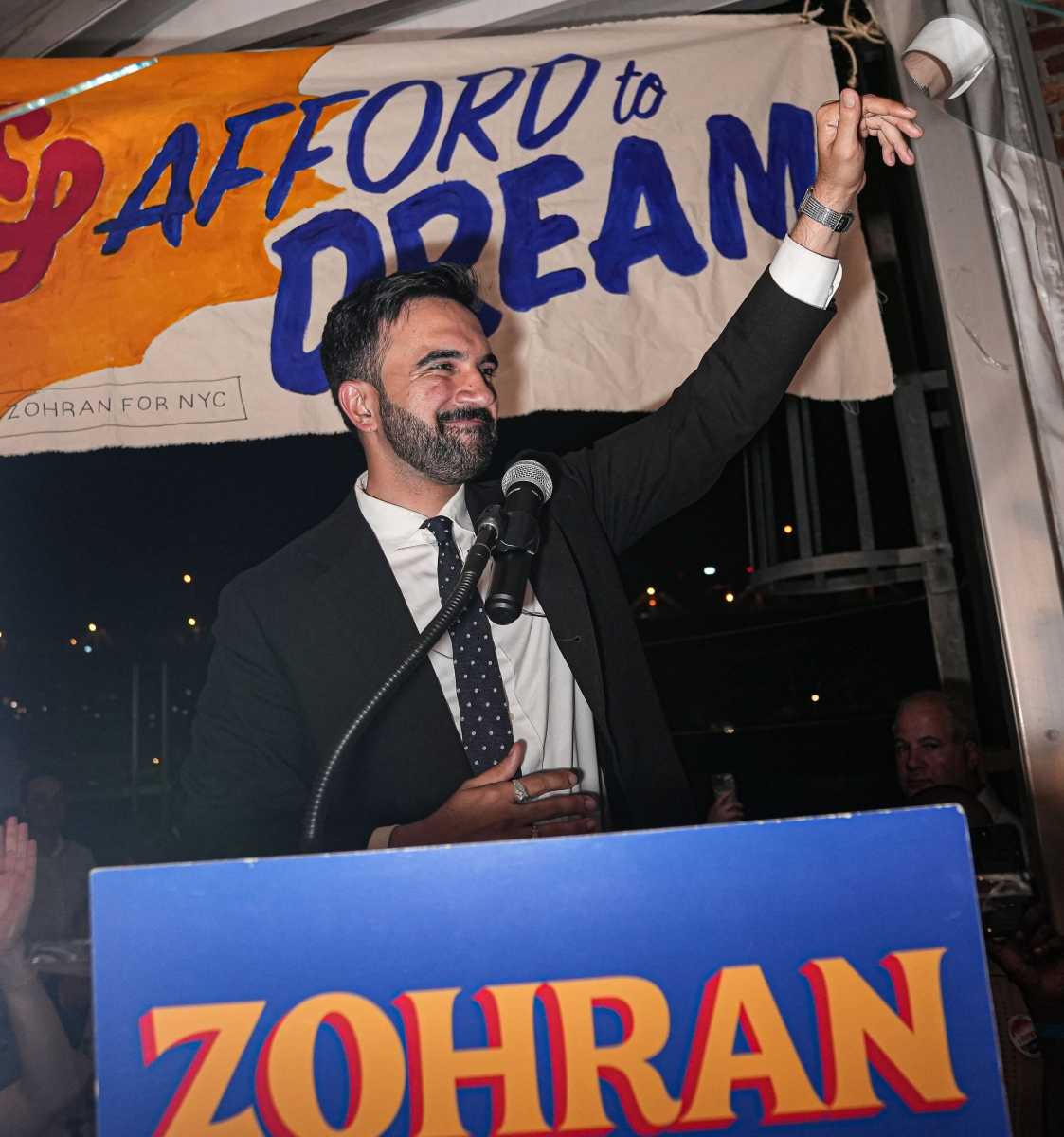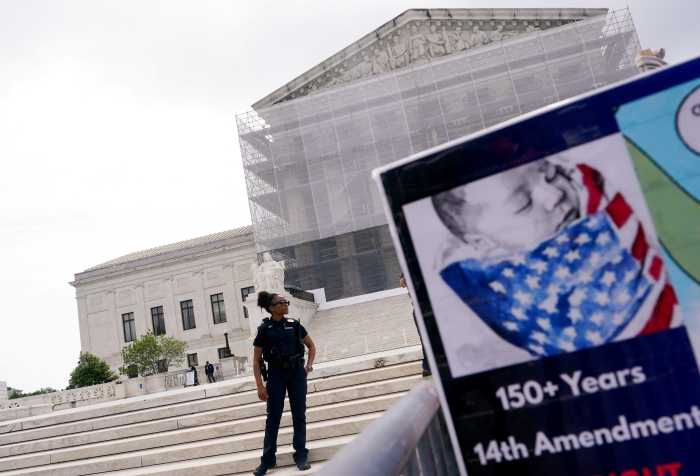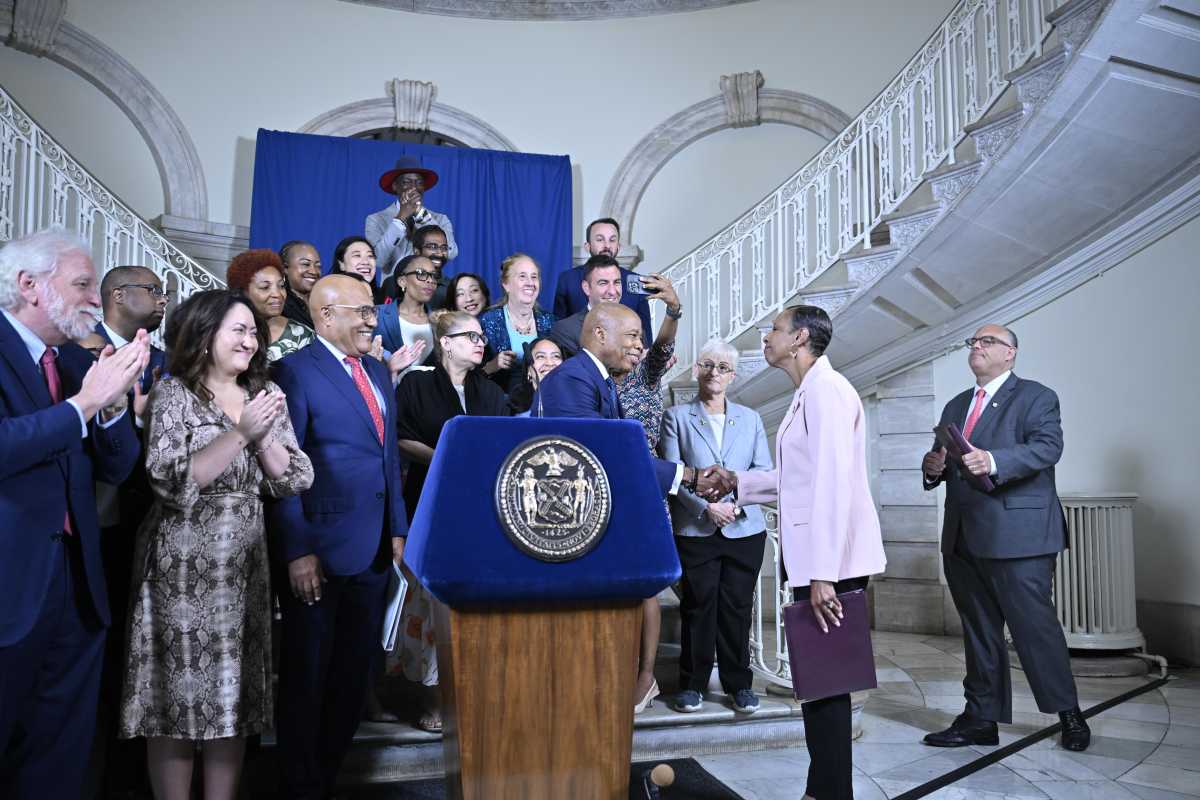By Sadef Ali Kully
The Bangladeshi American Advocacy Group, gathered with community leaders and elected officials to advocate on Bangladeshi-Americans Annual Lobby Day in Albany last week and show support for the Religious Garb Bill, which would prohibit discrimination in the workplace against religious attire,
The prime sponsors of the bill are state Sen. James Sanders Jr. (D-South Ozone Park) and state Assemblyman David Weprin (D-Fresh Meadows). The bill has passed the Assembly but has had difficulty gaining the votes needed in the Senate over the last few years.
“In 2015, in a city as culturally diverse as New York City, people should not be facing hatred or discrimination based on their faith. We should not ostracize those who choose to wear religious garb or segregate them in the workplace,” Sanders said. “We should be finding ways to bring people together, not drive them further apart.”
The legislation was proposed in response to a series of cases and concerns from religious communities throughout New York who were discriminated against in the workplace due to their religious garb or facial grooming.
“A person should be able to work and practice their religion. We are proud to stand up for the religious and workers’ rights of all New Yorkers and urge all of our state lawmakers to support the passage of the Religious Garb Bill to continue to ensure that all workers are treated equally under the law regardless of their race, religion or ethnicity,” said Kamal Bhuiyan, chairman of the Bangladeshi American Advocacy Group. Founded in 2011, BAAG is a Jamaica-based advocacy group of Bangladeshi immigrants who want to empower the Bangladeshi-American and other immigrant communities in New York.
Kevin Harrington, a Sikh subway motorman who worked for the MTA for 20 years, attended the March 3 rally. He was honored for leading passengers to safety during 9/11, but was ordered to remove his turban in 2005 by the MTA. He was told that if he refused to remove his turban, he would lose his job as a train operator and the privileges he had earned based on his years of service.
“In my case, the MTA honored me for driving my train in reverse, away from the towers on 9/11 and leading passengers to safety. They called me a ‘hero of 9/11.’ Policies that prevent workers from practicing their religion are driven by fear and make no sense,” Harrington said.
As a practicing Sikh, Harrington is required to maintain uncut hair and cover it with a turban. Harrington filed a civil suit against the MTA that was settled in 2012. Currently, today Sikh MTA employees are now allowed to wear their turbans with or without the MTA logo.
“As a Sikh American, whose community has continuously faced discrimination in the workplace, too often I have seen employees leave their job because of racism or religious intolerance,” said Dr. Paul Uppal, secretary of the Guru Nanak Darbar of Albany.
The legislation would amend the civil-rights law, the executive law and the labor law in relation to prohibiting discrimination against religious attire, including facial hair.
“An individual should never have to choose between their place of employment and their religious observance,” said Weprin.
This bill protects the rights of employees against discrimination for wearing any sort of religiously motivated or mandated garb or appurtenances, including turbans, kippahs, hijabs and beards, as long as such garb or appearance does not interfere with the responsibilities of the position.
“We enthusiastically support this important bill which is calling for equal employment opportunities for all New Yorkers regardless of religious attire and facial grooming. This religious observance issue confronts many Orthodox Jewish New Yorkers, who ought to be protected against discrimination at their worksites. We strongly urge all New York State legislators to enable the passage of this vital bill,”said Rabbi Israel Rubin, regional director of Chabad of the Capital District.
The Bangladeshi-Americans Annual Lobby Day is mainly sponsored by Senator José Peralta (D-East Elmhurst).
“As a fairly new immigrant group, my Bangladeshi-American constituents have already strengthened and enriched our neighborhoods and our local economy through their contributions and customs,” said Peralta.
The Religious Garb bill is expected to be put on the calendar in March to be voted on later this year.
Reach Reporter Sadef Ali Kully by e-mail at skull



































